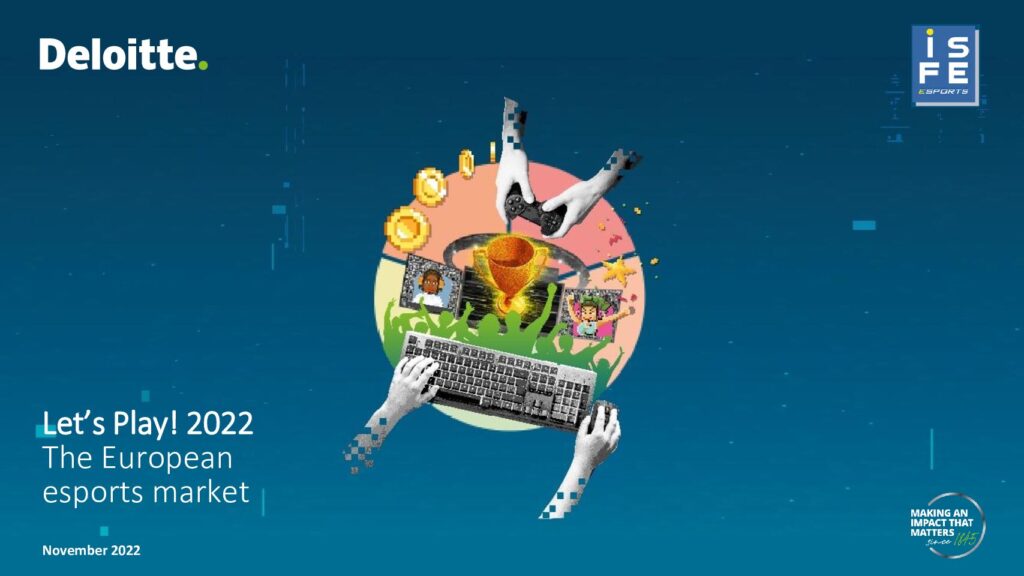Are esports a sport?
The European Parliament stated in its recently adopted Resolution on esports and video games that, “esports and sport are different sectors; not least because the video games used for competitive gaming or esports are played in a digital environment and belong to private entities that enjoy full legal control and all exclusive and unrestricted rights over the video games themselves.”[1]
Esports operate within a different legal and societal framework than sports[1]. Legally, they fall under various laws like IP, consumer and minor protection, e-commerce, company laws and more at both European and national levels. Applying sports laws to esports is inappropriate and could hinder stakeholders in both the European and the global market.
Characteristics that define esports include:
- Esports revolve around the use and communication of Intellectual Property (IP): At the heart of the esports ecosystem are video games. Video games are complex creative works[2]. They involve software interacting with users, showcasing images, text, and sounds. These, and other elements, can be protected by copyright and other IP rights. Without this protection, video game developers and publishers would not be able to invest in the development of their games.
- Esports are made possible by the IT infrastructure of video game companies: Competitive video games require sophisticated network infrastructure for thousands, sometimes millions, of players to connect at the same time. These infrastructures are supplied and maintained by video game publishers.
- Rules are not fixed, they are regularly adjusted to keep the games playable: Competitive video games require endless reworking, rebalancing, and adding new content to keep them updated, secure, playable, and enjoyable.
[1] European Parliament resolution of 10 November 2022 on esports and video games (2022/2027(INI)), Paragraph 28.
[2] European Court of Justice (C-355/12): The Court of Justice of the European Union was asked for a preliminary ruling on the interpretation of Article 6 of the Copyright Directive (Directive 2000/29/EC) in proceedings before the Italian courts between Nintendo and PC Box concerning the sale by the latter of so-called ‘mod chips’ and ‘game copiers’. In the course of its ruling, the Court said that video games “constitute complex matter comprising not only a computer program but also graphic and sound elements, which, although encrypted in computer language, have a unique creative value which cannot be reduced to that encryption. In so far as the parts of a videogame, in this case, the graphic and sound elements, are part of its originality, they are protected, together with the entire work, by copyright in the context of the system established by Directive 2001/29.”










